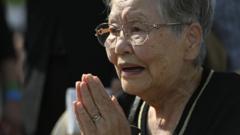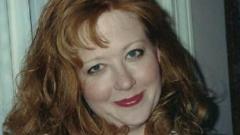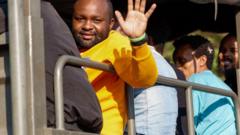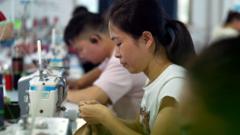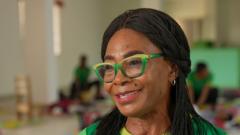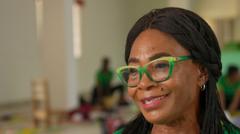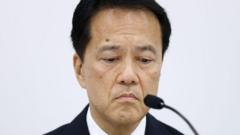As the 80th anniversary of the Hiroshima bomb approaches, the plight of Korean survivors receives renewed attention. Living with profound trauma and health issues, they share their harrowing experiences while emphasizing the need for acknowledgment and justice.
Unforgotten Shadows: Korean Survivors of Hiroshima’s Atomic Nightmare

Unforgotten Shadows: Korean Survivors of Hiroshima’s Atomic Nightmare
The untold stories of Korean survivors highlight the lingering scars of Hiroshima's devastation 80 years later.
The echoes of August 6, 1945, resonate still in the lives of survivors of the Hiroshima atomic bombing, particularly for those with Korean heritage. Lee Jung-soon, an 88-year-old resident of Hapcheon, South Korea, recalls that fateful day when terror fell from the sky. "They say the streets were filled with the dead – but I was so shocked all I remember is crying,” she lamented. The explosion instantly claimed around 70,000 lives in Hiroshima, with countless others facing death from radiation and injuries that followed.
Though the devastating impact of the bombings on Japan is well-explored, the stories of Korean victims, who comprised about 20% of the immediate casualties, remain obscured. Currently, over 140,000 Koreans were present in Hiroshima, many having migrated due to forced labor or dire economic conditions under Japanese colonial rule. Their survival narratives involve disfigurement, sickness, and a long pursuit of recognition and justice, often met with silence or denial.
Shim Jin-tae, aged 83, expresses frustration about the lack of acknowledgment from Japan and the South Korean government. "Not the country that dropped the bomb. Not the country that failed to protect us,” he asserts, as he resides in Hapcheon, a region dubbed "Korea's Hiroshima." This small town has become a refuge for many like him, grappling with health issues linked to radiation exposure.
Despite grappling with various illnesses—including skin cancer, Parkinson's, and heart ailments—Lee and other survivors are not just fighting for their health but for justice. The Ministry of Health and Welfare (MOHW) in South Korea is currently conducting genetic studies to determine the full extent of the impact on second and third generations of survivors. Early data suggests a worrying trend of higher illness rates among these later generations.
The journey back to Korea for the roughly 23,000 survivors who returned after the war was not one of reconciliation. Instead, they faced stigma and prejudice, branded as “cursed.” Many were ostracized due to their disfigured appearances, leading to a culture of silence surrounding their experiences.
Critically, the plight of second-generation survivors like Han Jeong-sun, who suffers severe health challenges and societal rejection, showcases the intergenerational impact of the bombing. Her story reflects a painful legacy compounded by systemic denial from authorities regarding their burdens as victims.
Recently, Japanese officials paid a formal visit to Hapcheon—a landmark moment that many hoped could signal a shift toward reconciliation. Yet, activists argue that true peace necessitates an acknowledgment of past atrocities. "Peace without apology is meaningless," says Junko Ichiba, advocating for recognition of Korean victims.
As the shadows of their past loom large, survivors call for recognition and an unyielding commitment that the horrors of atomic warfare must never be forgotten or repeated. Each story remains a testament to resilience and an urgent plea for accountability that transcends generations.


